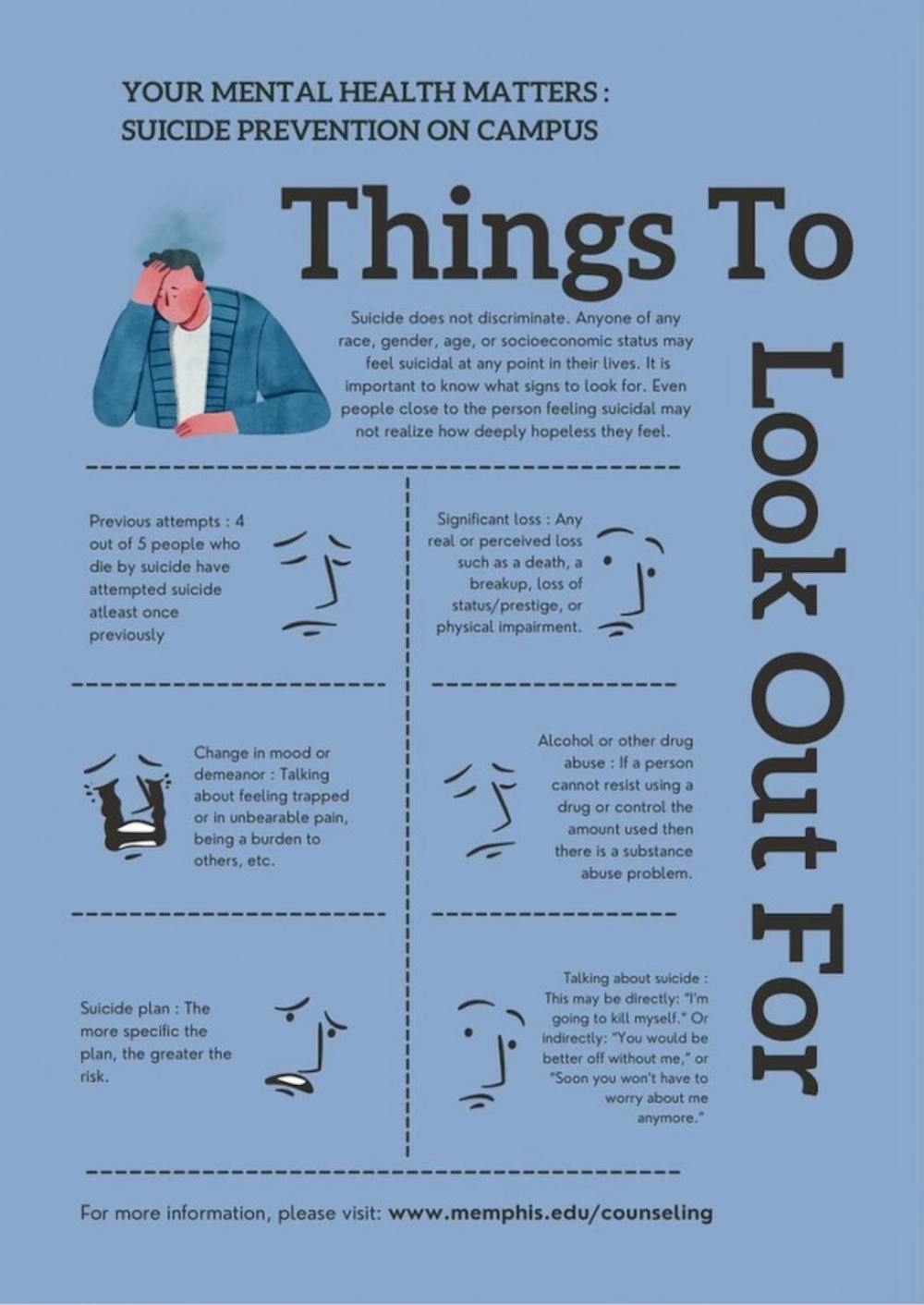The 2019-2020 academic year was just the beginning of many obstacles for college students across the nation. Seemingly overnight, COVID-19 forced universities to transition from on-campus to virtual learning in order to ensure the safety of their staff and students. These abrupt changes left students confused and displaced, causing their mental health to take a hit.
“When they sent us home I really didn’t know what to do," said Brittany Davis, a student at the University of Memphis. "My relationship with my family isn’t ideal and I lost a lot of opportunities like on-campus networking and my internship. You know they say college is supposed to be the best years of your life and I feel like a majority of mine were lost so I kind of emotionally just shut down.”
Since the start of the COVID-19 pandemic, the number of students seeking counseling services on campus has risen significantly according to Victoria Jones, a social worker at Student Health and Counseling Services.
“We saw an increase of approximately 40% in service delivery from the Fall 2020 semester to the Fall 2021 semester. This increase is reflective of national trends and also is a result of decreased barriers to access services, with the implementation of telehealth services and creative outreach programming at our center,” Jones said.
The implementation of telehealth programs through the university allows students the ability to access counseling services virtuality. Chris Eves, a junior at the U of M said these programs provide more of an opportunity for students who may be too scared to ask for help.
“There is a stigma around mental illness so a lot of people our age aren’t super willing to just walk into a counseling center and admit they need help," Eves said. "The Telehealth option gives the people who may be struggling behind closed doors the chance to talk to a therapist in their own space, without feeling pressured or anything. That’s a great thing to me.”
The stigma associated with mental illness may be one reason students refrain from seeking the help they need. Some students also believe they will not be financially able to receive treatment, while others struggle with the fear of confidentiality. Jones wants students to know they do not have to worry.
“All currently enrolled students taking at least 6 credit hours are eligible for counseling through our office," she said. "Students enrolled in fewer than 6 credits can access our group therapy program. Student’s safety and confidentiality are among our top priorities.
“I hope that our center with many different levels of services and prevention programming can help demystify the therapy process and decrease student’s fear and stigma about help seeking.”
Although many campuses are making strides towards combating stigmas, when it comes to advocating for mental health, “There is always room for improvement.” Davis said. “You would be surprised how many people on campus don’t know about the counseling services that are offered. How can students get the help they need if they don’t know where to go and they are too afraid to ask?”
Tragedies on college campuses are more likely to be prevented by establishing open lines of communication and a strong collaboration among students, faculty and administrators according to the JED Foundation – a group focused on destigmatizing mental health in high schools, colleges and universities.
“Like any new skill or change, there is always discomfort in the first steps and once a person gets past that stage of discomfort, the fear can lessen and things can become more certain,” Jones said. “Our office offers a wide variety of services from counseling and psychotherapy to psychological assessments, to mental health workshops to help meet students where they are at.”
There are a number of different approaches to use against mental illnesses. One may attempt to change their sleeping patterns, physical activities, diet and even their personal relationships. Those who are struggling with anxiety, depression, or other mental illnesses are encouraged to reach out to the National Suicide Prevention Hotline, which provides free and confidential emotional support to people in suicidal crisis or emotional distress 24 hours a day, 7 days a week. To learn more about on-campus counseling services students can visit www.Memphis.edu/counseling.
According to the University of Memphis Counseling Center, these are signs to look for if you or someone you care about might need counseling services.






